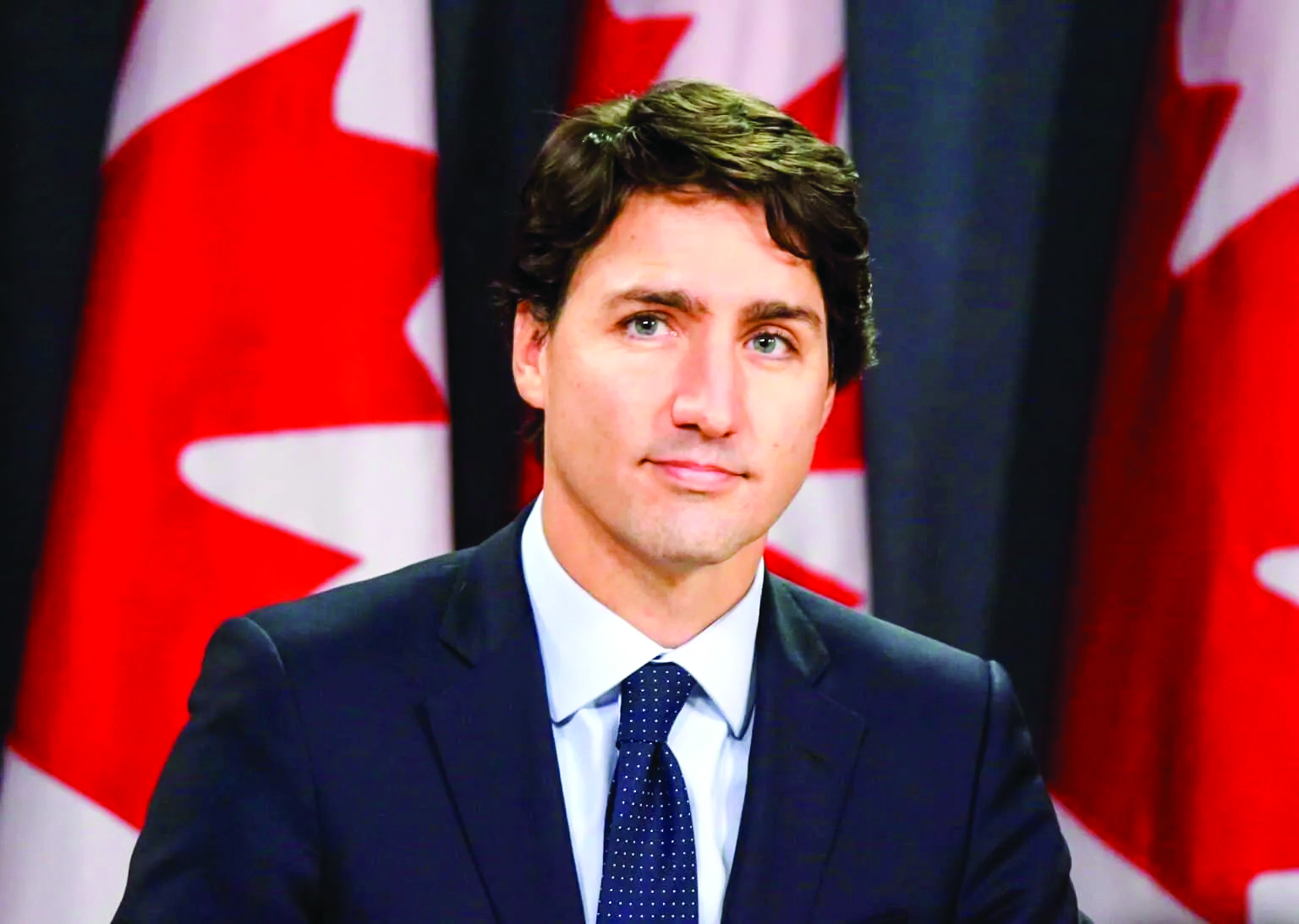New Delhi: Canada has given temporary resident status to at least 28 lakh individuals, who were looking for Canada ‘s permanent residency. It is multiple times higher than the permanent residency that the country can offer.
Canadian Prime Minister Justin Trudeau’s liberal image, which was constructed for his generosity that he showed while welcoming immigrants, few of whom reached Canada to escape the law of the land in their native country, is coming back to haunt him as the country now finds itself at a point where the number of refugee claims from mostly South Asian international students and non-students has reached gigantic proportions.
This problem will become greater with each passing day as more than 2 lakh post-graduation work permits (PGWPs) that are given to these students are set to expire next year, while the number of spots for permanent residents is limited to 5 lakh annually.
Official numbers show that under Trudeau’s administration, Canada has given temporary resident status to at least 28 lakh individuals, who were attracted to Canada by the prospect of permanent residency, which is multiple times more than the permanent residency that the country can possibly offer.
This is likely to lead to a significant increase in individuals remaining in Canada illegally or pursuing refugee status as their only means of securing residency. As per official data quoted in media reports, over 2.03 lakh international students in Canada hold post-graduation work permits (PGWPs) set to expire by the end of 2025. Of this, nearly 70,000 PGWPs will expire between September and December 2024. Data shows that in 2023, 12,500 foreign students, a majority of whom are Indian nationals, made refugee claims, which is a 600% increase from 2018. Similarly, in the first eight months of 2024, there were about 13,000 asylum claims from individuals on study permits.
In total, about 1.19 lakh refugee claims were made this year by people on temporary residence permits, which have led to the Immigration and Refugee Board facing a backlog of 2.5 lakh applications, which was less than 60,000 in 2022. By mid-2024, Canada has 28 lakh temporary residents, while the permanent .residency spots are limited to roughly 5 lakh per year, a certain portion of which is reserved for immigrants directly from overseas. In 2022, the number of temporary residents was just 14 lakh.
Officials involved in the deliberations in the capital Ottawa have called the situation ‘alarming’ as those students, who are not granted permanent residency, are likely to indulge in protests and, in some cases, illegal activities to acquire citizenship or take up informal jobs to sustain themselves while staying under the radar of government officials to escape deportation. To add to this, subtle changes in immigration policy are now being introduced by officials to prioritize French speakers who are considered ‘more employable and hirable’ than their South Asian counterparts.
According to official data, most of the South Asian students were enrolled in less prestigious institutions like Conestoga College, Ontario as the admission requirements were ‘liberal’ to attract more foreign students. There are at least 32,000 foreign students in this college, which is more than 75% of its total strength. On the face of it, Trudeau’s government was seen as championing a progressive immigration policy, aiming to attract skilled workers and international students to bolster Canada’s economy.
However, the brain drain and influx of foreign exchange, as Trudeau was expecting, did not happen, with top-tier institutions like the University of Waterloo seeing a decline in international student enrolment due to its high level of admission criteria, while less selective colleges with lower fees experienced exponential growth. The policy of Trudeau to attract and recruit the “best and brightest” seems to have fallen on its face, with few of these intended individuals getting into criminal activities and gang wars.
Now Canada stares at a huge population that neither wants to go back nor it meets the ‘criteria’ of being the best minds of their native countries.
Indian nationals are likely to be among the most affected by this mismatch of demand and supply, as a significant portion of international students in Canada comes from India, and many hold post-graduation work permits (PGWPs) by enrolling in less prestigious colleges and universities.
However, they are now going to find themselves in a lurch, with resentment among the domestic population regarding the massive influx of immigrants and students, pushing Trudeau to complicate the process of PGWPs getting permanent residency. It is expected that many of the Indian nationals, who wanted Canadian residency, will have no option but to come back to India.
Many Indian nationals, like their South Asian colleagues, had invested huge resources to enter Canada and then apply for permanent residency. Officials speaking to The Sunday Guardian pointed out that protests have already started happening, with international students demanding visa extensions and a liberal route to permanent residency.
Separately, both inside the administration and in the drawing rooms of ordinary Canadians, locals are now criticizing Trudeau for allowing institutions to capitalize on immigration for profit without adequately considering the long-term implications. The impact of this liberalism of Trudeau, officials said, will be felt by Canada years after the country has voted to elect a new prime minister next year.

